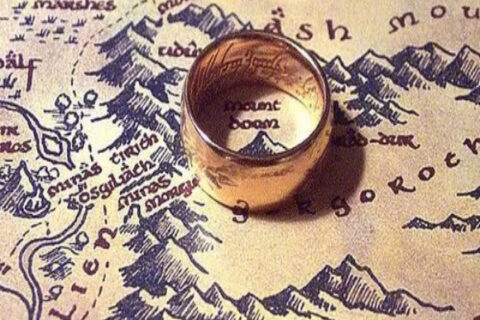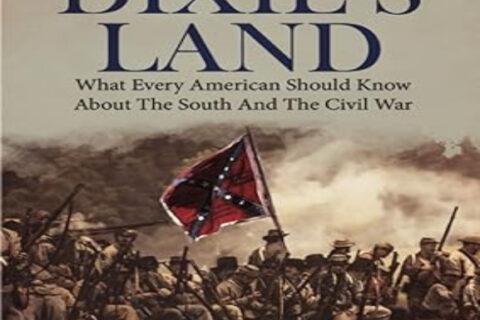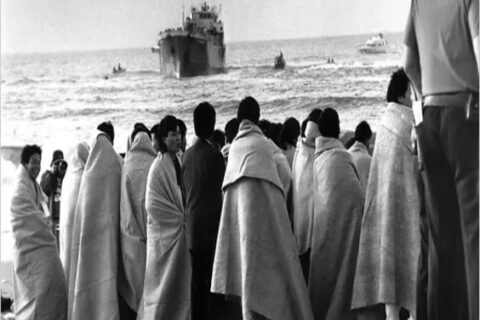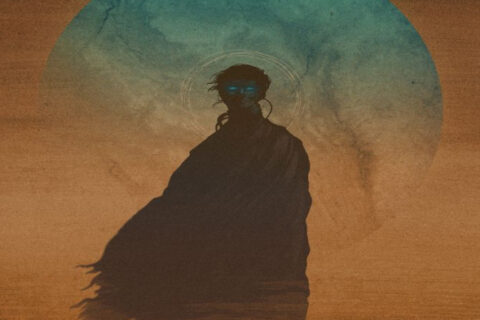Coot rolled his eyes. “An evil Coot Pickard. Lord have mercy on us all. The good one’s bad enough.”
With that, Buddy and Coot proceed on their way down the rabbit hole in M.C. Tuggle’s newest novella.
The Genie Hunt is the latest chapter in the paranormal adventures of Southern lawyer Buddy Vuncannon and his good ol’ boy friend Coot Pickard, as the two find themselves caught up in the middle of a mystery involving robbers, genies, childhood friends, and the dark side of globalization; a modern day Southern Gothic whodunit that moves fast and leaves you wondering what they’ll get into next.
Tuggle is a North Carolinian, whose love for his home comes through in his work, much of which features the region as a setting. This in itself was a refreshing thing to encounter. In a day and age when most of our authors write with the voice of the transplant to New York City or engage in self-indulgent hand-wringing tropes such as “a lone voice of reason and compassion in the benighted South,” Tuggle writes as a man happily at home. He belongs to it, it belongs to him, and he has a ton of fun stories to tell you about the doings there.
He has said that Ernest Hemingway, Flannery O’Connor, Robert E. Howard, and Mickey Spillane have been strong influences on him and it shows. Tuggle’s writing is lean and mobile, yet filled with characters and settings conveying a rich depth suggesting to the reader there is very much an entire world on the other side of the page. Reading The Genie Hunt, it’s easy to believe men like Buddy and Coot are real Southerners caught up in a world of the small town supernatural, lending their stories the feel of Monster Hunter International meets Andy Griffith.
While I don’t want to give away too much of the story, I found it an interesting twist that the aforementioned genie arrives at the town via the Muslim community. Tuggle neither panders nor casts them as caricatures. Worlds are simply colliding, as is their wont, and by leaving things left unsaid, I believe gives the story an element of nuance often missing in the genre.
In addition to things that have come home are the things that have been lost, and what people grab ahold of when their world falls apart. In one scene, as the two friends discuss the case and the circumstances surrounding a friend who had fallen by the wayside and later converted to Islam, Coot gives voice to a specter with which we are all too familiar, saying:
“You don’t know what it’s like for people like him `n me. You got to go to college. We had to work at Alma Desk, Cone Mills, Adams-Millis. Until they all closed. When they shut their doors and moved overseas, it was like the whole world was against us.”
I came across Tuggle’s writing via his blog and his articles at Abbeville Institute, which then led me to his work in fiction. Particularly, Flash Fiction; in effect, a short story, but cut down even further to its essence. Here he gives the reader just enough to prime their imagination, and leave them wanting more.
The first of these I read was The Clincher, and it reminded me of something out of the great episodes of The Twilight Zone. In his post for it, Tuggle referenced William Lind’s position “that in future conflicts, warring groups will clash over narrative even more than over territory, making the control of public opinion ‘the dominant operational and strategic weapon.’ It occurred to me that 4GW will weaponize the advertising industry.” The result is a conversation between the executives from a Charlotte-based ad company who have landed a contract for “a PR campaign to prepare the Earth for invasion.”
Witch Flambé gives us our first adventure with Buddy and Coot, as a “guerilla dining” experience ends with them having to figure out who was “using magic spells to sabotage an outlaw restaurant.”
Another one of his Flash Fiction stories that resonated with me was Black Ghost. With less than 1,000 words, he gives a haunting account of a young man in a post-America republic attending his grandfather’s funeral, and I dare you to read it and not to get a case of The Feels.
These are just a few of his stories. They are well worth a read and the rest can be found at his site.
I had the pleasure of corresponding with him recently. I asked him about Southern literature and how we can foster it, as well as his thoughts on The Purge going on in The South right now, what we should be doing, and how to fight the culture war. Given his answer, I shall leave him the final word:
“I think the best thing we can do now to get our voice out there is to just do it. There are still many venues available to us, and we have to take advantage while we can. We have to keep reminding folks there’s a living, dynamic culture here in danger of being overrun. Culture is a self-organizing principle, and once it’s weakened, or gone, the only alternative to anarchy is Leviathan.”





Thanks, I’m always looking for Southern writers!